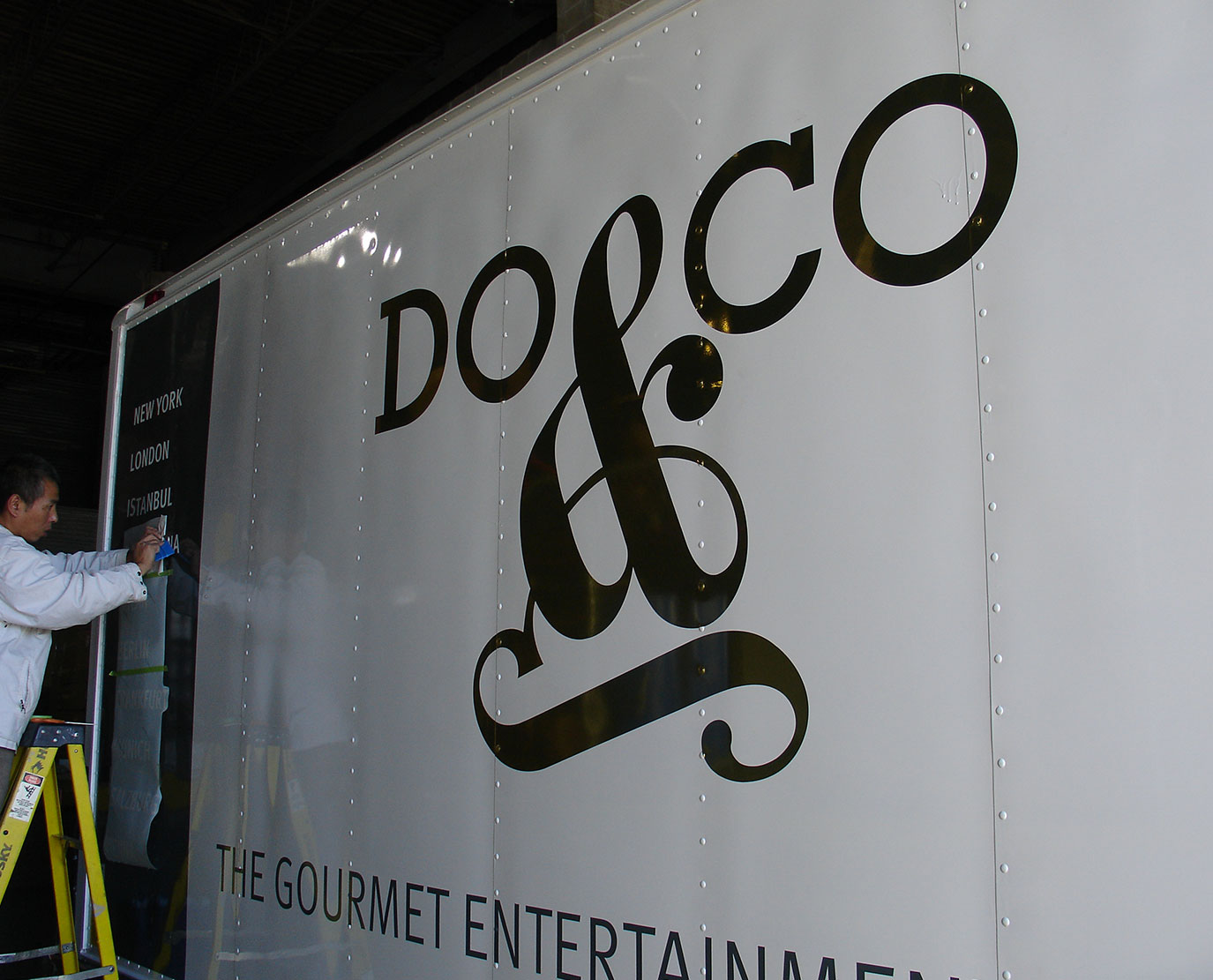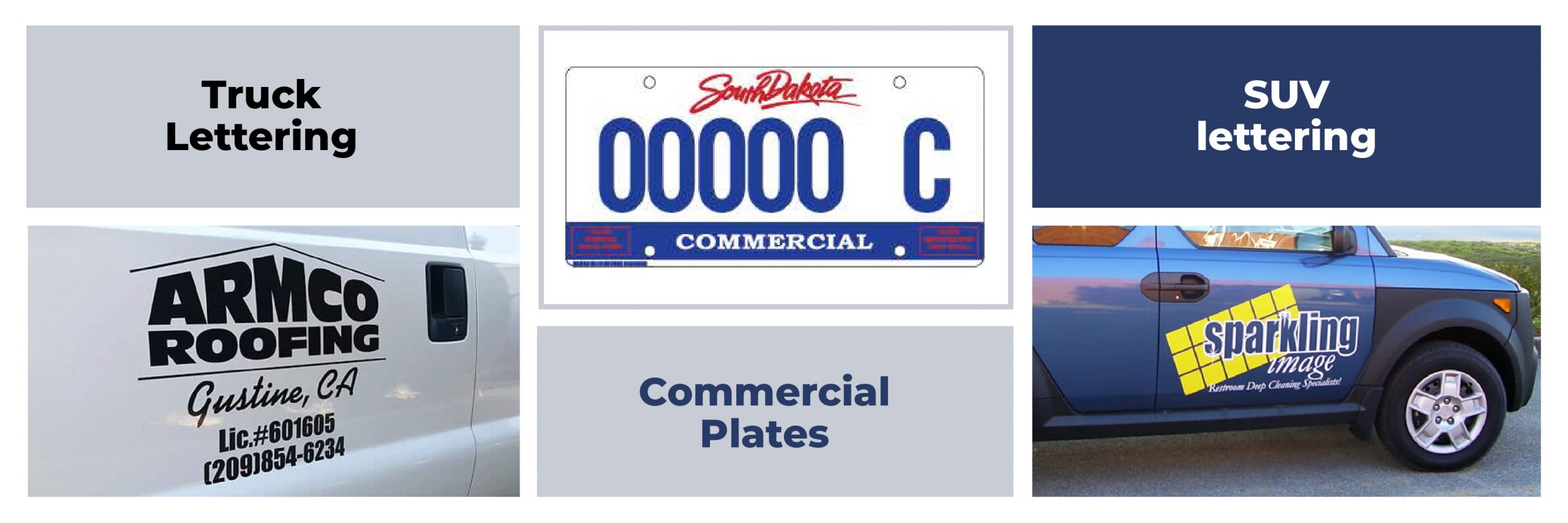When you exit your work vehicle you should also be promoting your brand without saying a word. Not only is car, van or truck lettering a great way to advertise your business while parked on the street, it can also help you to avoid or successfully fight a pricey ticket (we’ll have more about that later).
First we’ll go over what makes a truck a commercial vehicle and vice versa. Then we’ll show you why truck lettering is so important in New York City.
Different Types of Work Vehicles
The city of New York considers commercial vehicles and trucks to be two separate and distinct categories — although the two can overlap. Because of this, the first thing you need to know is whether your work vehicle falls into one (or both) of these categories.
Is my work vehicle a truck?
This is a commonly asked question. With the popularity of two axle cargo vans and sports utility vehicles (SUVs), many business owners and professional drivers are unsure what constitutes a truck in NYC. According to the NYC Department of Transportation (DOT) a truck is a vehicle “designed for the transportation of property” that has one of the two following characteristics:
- Two axles and six tires (eliminating most SUVs and vans from this category), or
- At least three axles
What Makes my Truck a Commercial Vehicle?

The important thing to remember is this: just owning a truck with commercial plates doesn’t mean you have the parking privileges of a commercial vehicle in NYC. When it comes to standing in a loading zone your vehicle will need to satisfy several different requirements, including having truck lettering installed on either the doors or sides. The New York City Police Department (NYPD), which is tasked with parking enforcement, only considers a commercial vehicle to be legal if it:
-
- Has commercial plates
- Is permanently altered by removing all rear seats — except for vehicles with a separate passenger and cargo area clearly divided from the front two seats with a partition
- Features the owners’ name and address in permanent letters in the middle of both doors and/or both side panels of the vehicle. The lettering must be at least three inches high and be in a color that stands out from the vehicle pain
So… why is it important if my vehicle is considered a truck?
The reason is because in many NYC loading zones you will see the following sign:
No Standing except Trucks Loading and Unloading
With the exception of certain types of specific vehicles and locations that can be found here, you will not be able to park your work vehicle in one of these loading areas — unless your vehicle is a truck delivering merchandise or unloading equipment for construction and repairs.
If my Work Van is Registered Out-of-State, Is It Exempt from any of These Requirements?
Unfortunately, no it is not. An out-of-state vehicle still has to adhere to both state and local regulations. According to the NYCDOT, any conveyance that qualifies as a commercial vehicle must be permanently altered and lettered as described above. It’s also important to point out that this rule technically affects any car, van or truck when it is moving property or delivering a good or service. This means that even if your mode of transportation does not have commercial plates, it must still abide by all commercial vehicle rules when it is operating as a delivery or work vehicle.
What are the Parking Restrictions for a Commercial Vehicle?
Commercial vehicles are restricted from the following types of parking:
- Parking at an angle – commercial vehicles may not park at an angle, except when it is necessary for making a delivery. If it is necessary for a delivery, this position is only allowed if there is enough space for traffic to pass between your vehicle and the curb.
- Street Storage – a commercial vehicle cannot be left parked anywhere — whether it’s in a commercial, industrial or residential area — on the street for more than three hours. Off-street parking is required whenever leaving your vehicle for an extended period of time.
- Overnight Parking in Residential Areas – you are not allowed to park your commercial vehicle in a residential area between the hours of 9 p.m. and 5 p.m. If you are fined for this violation and wish to fight the ticket, the burden of proof is on you. To avoid being penalized, the owner or driver needs to demonstrate that they were engaged in some type of business within three blocks of where their vehicle was parked. Gas and heating maintenance companies, heating oil vehicles and public utilities are all exempt from this parking restriction.
What are the Benefits of Parking with Commercial Plates and Lettering?
When driving a properly modified work truck — with both commercial plates and lettering — you will possess special parking privileges not extended to other types of vehicles. For example, you are legally allowed to stand in a no-parking zone while making a delivery.
What if my Legally-Parked Truck Still gets a Ticket?
If your commercial vehicle does get a ticket while it’s legally parked, you can fight (and win!) with either of the two methods listed below:
-
- You can provide documentation proving that you or your driver was engaged in a legitimate business activity when and where the vehicle was ticketed. This type of evidence can include any type of written proof, such as a signed delivery receipt.
- Pro Tip: It’s always a good idea to have customers write down the date and time when they are signing for a package or service
- You can produce an affidavit signed by the driver or a company employee. An affidavit is a written statement made under oath. The person signing the statement, known as an affiant, swears to its truth. When contesting a parking ticket for a commercial vehicle, the affiant will state that the vehicle was engaged in a business activity at the location and time it was ticketed. While a lawyer isn’t necessary to create an affidavit, it will usually need to be signed in front of a public notary. The notary will then stamp or notarize the written statement.
Promote Your Business with Legally-Required Lettering
When it comes to buying and installing lettering on the doors and sides or your commercial vehicle, Brooklyn Signs is the go-to destination for thousands of businesses in New York City and New Jersey. We carry a wide variety of permanent vinyl lettering decals, and Truck wraps, that are both inexpensive and look great. For more questions about outfitting your work truck, van, or car with informative lettering that announces your business, feel free to reach out anytime, day or night.


